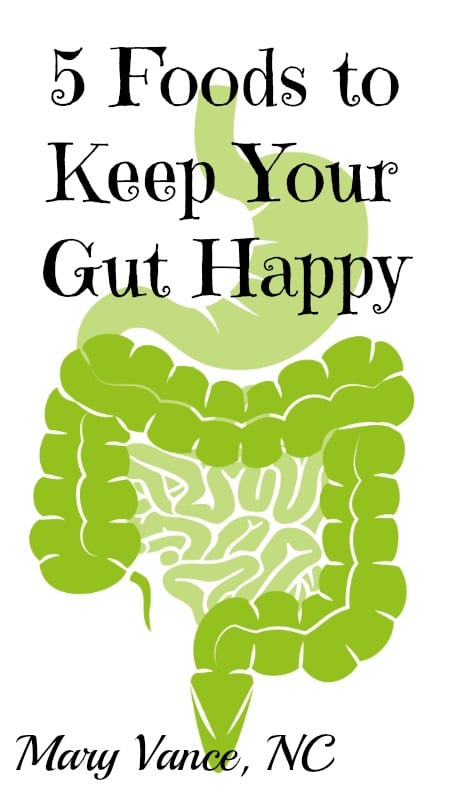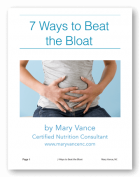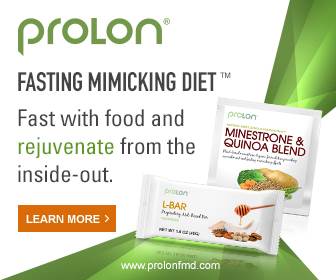All disease begins in the gut, said Hippocrates, the father of modern medicine. We’re really starting to see how much truth this phrase holds. For example, our gut bacteria outnumber our human cells (but not by as much as 10:1 as has been previously reported). This is significant because in many ways, our trillions of gut bacteria dictate the status of our health. We all have both “bad” and good gut bacteria, but when the bad start to outnumber the good, our health suffers.
Dysbiosis, or an overgrowth of bad gut bacteria, contributes to increased intestinal permeability, inflammation, candida, parasites, weight gain, a decrease in immune health (the majority of the immune system is in the gut, after all!), and even hormone imbalance.This results in symptoms like joint pain, sugar cravings, bloating, frequent illness, difficulty losing weight, reflux, constipation, and inflammation, a factor in nearly every disease.
Think of your gut bacteria as your best friends, all living in there to help keep you healthy. Like your own little chia pet, you have to feed them so they’ll multiply and take care of you. While taking a probiotic supplement can help, there are certain foods that offer both prebiotic (food for your probiotics) and probiotic benefit. These foods keep your gut healthy and assist in digestion, manufacturing vitamins, keeping you regular, and keeping your immune system running strong. Better probiotic diversity = better overall health and weight maintenance.
Try and get at least one of these foods daily. If you’ve never tried, say, lentils or raw kraut, make a goal to add the food in once weekly until you feel comfortable with it. Start with an easy recipe you like and build from there.
Five Foods for Gut Health
1.In no particular order are these foods listed, but I have to say that lentils are one of my all time faves. A recent Chinese analysis of more than one million adults found that higher consumption of legumes like lentils is tied to lower risk of colorectal cancer. This is probably due to the fiber content: A cup of cooked lentils has nearly 16 grams of fiber! But legumes are also a good source of other compounds and nutrients thought to have anti-cancer effects, like isoflavones, lignans, and vitamin B. I love lentils cooked in bone broth and mixed with greens, curry powder, and chicken sausage (or just the greens if you want a meatless meal).
2.Fermented foods certainly get a top billing because the fermentation produces both beneficial enzymes to support digestion, probiotics to help colonize the microbiome, AND vitamin K2, a potent anti-cancer vitamin that is necessary for vitamin D absorption. I usually go for coconut water kefir or a little raw kraut every day; you can make both yourself (or click the coconut water kefir link above for my preferred brand). You can also make your own coconut milk yogurt! I lean toward dairy free options because I don’t think dairy should be a staple in an adult’s diet.
3.Prebiotic foods contain inulin and other fibers and starches that feed your probiotic bacteria, so it’s important to include these guys too. Alliums, asparagus, banana, artichoke, asparagus are some of the best sources. It’s easy to add onion and garlic to stir-frys and such, but branch out and get some asparagus (delicious and easy roasted) and even artichoke, which is also great for the liver.
4.Chia seeds are another personal favorite. When consumed, chia seeds create a gelatin-like substance that also works as a prebiotic in the gut. Chia seeds are 40 percent fiber, by weight. This makes them one of the best sources of fiber in the world. They’re also rich in trace minerals and a source of protein and omega 3s. I love chia puddings, or just toss 1 tbsp in with your smoothie.
5.Bone broth and collagen peptides (and gelatin too) are rich in amino acids and collagen the gut uses for repair. These foods support structural integrity of the gut and help heal a leaky gut. Great for skin and hair, too.
BONUS: psyllium husk. I don’t recommend psyllium husk for everyone, because it can irritate those with SIBO or inflammatory GI issues. Psyllium is a soluble, prebiotic, bulk-forming laxative. This means it soaks up water in your gut and makes bowel movements easier. It helps promote regularity without increasing flatulence. It can be used to ease constipation, or it can be added to your diet to help promote regularity and overall digestive health. Psyllium may also improve cholesterol levels (probably because it helps bind up and excrete excess cholesterol) and heart health. ALWAYS introduce psyllium slowly or it can actually cause constipation, gas, and bloating. Try 1 tsp adding to smoothies, or for constipation, add to unsweetened cranberry juice at night before bed. Increase gradually up to 1 tbsp.
Want Even More Support?
Please consider joining my 21 day gut reset program. You can join at any time, as it’s a self-paced e-course. All you need is a little motivation and an email address to join! Check out everything you’ll get:
- get rid of bloating, constipation, heartburn, gas, and indigestion
- have more energy, better focus, a flatter belly, glowing skin!
- receive a daily email for 21 days to help you heal your gut
- includes a 21 day meal plan: gluten, dairy, soy, refined sugar free
- 80+ easy & delicious gut healing recipes
- shopping list
- access to our private support group where you can ask questions and get even more info!
- a chart to help you build meals
- info on supplements you may need to enhance your journey
- Click here to join us!
Pin it!

Mary Vance is a Certified Nutrition Consultant and author specializing in digestive health. She combines a science-based approach with natural therapies to rebalance the body. In addition to her 1:1 coaching, she offers courses to help you heal your gut and improve your health. Mary lives in San Francisco and Lake Tahoe in Northern California. Read more about her coaching practice here and her background here.








Thanks for the information you have given here because I often face the problem of constipation and I will surely try the foods you have mentioned.
I hope these will help me in getting rid of the stomach issue permanently.
Can anyone please tell me the foods for treating stomach ulcer?
Do you have H Phylori? I am suffering many stomach issues also. Been doing everything to heal and have just found out I have H phylori. I do not want to be taking antibiotics as I have tried and I have still tested positive ..I also tried the HP pack for 3 months (capsules) and again tested positive. I do not want to be on antibiotics again as I will kill all the good bacteria that I am slowly trying to rebuild. I am so confused and exhauseted.
Rita, this post may help: https://www.maryvancenc.com/how-to-get-rid-of-h-pylori/
I’d recommend working with a functional medicine practitioner or integrative MD in your area.